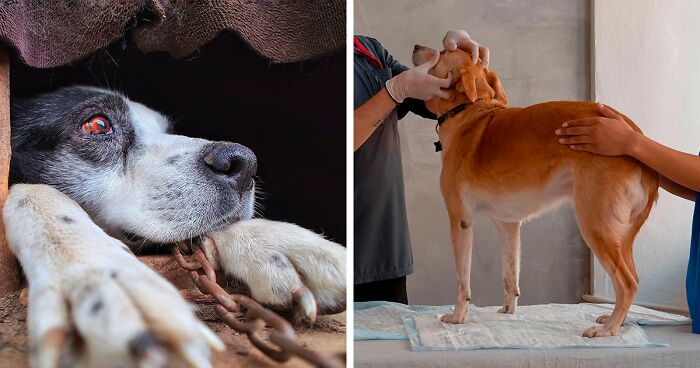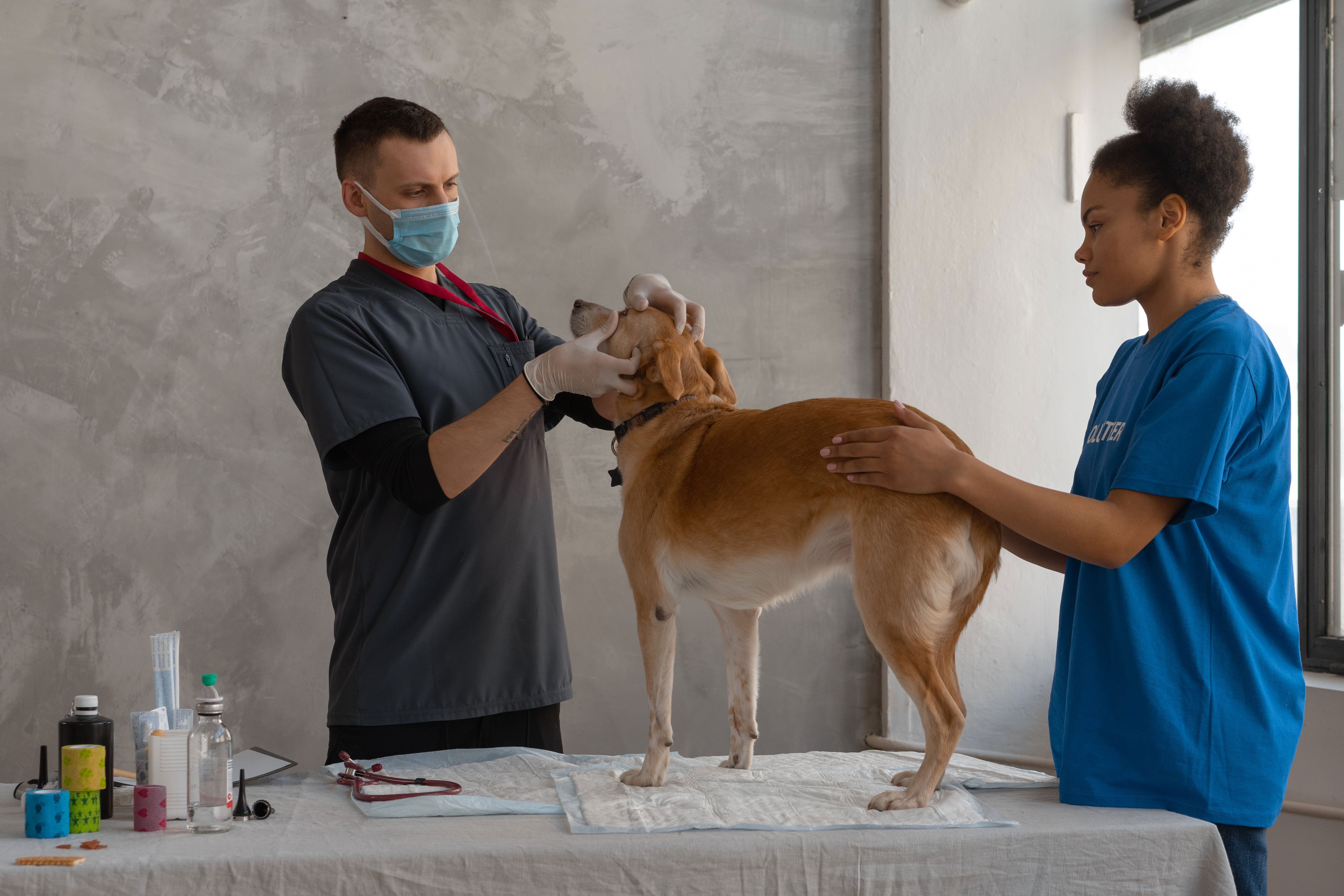Nothing is more irritating than having itchy and irritated eyes. Conjunctivitis, or pink eye, is a common eye condition in dogs. As it affects the mucous membrane that goes over the eye, it can be quite uncomfortable.
The inflammation process can start in one eye and then quickly transfer to the other eye if not addressed soon enough. The mucous membrane, or conjunctiva, plays a major role in protecting the eyeball from bacteria or anything else that does not belong in an eye.
- Pink eye in dogs can spread from one eye to another if untreated.
- Symptoms include discharge, pawing at eyes, and inflammation.
- Treatment depends on cause and may include drops or surgery.
If the delicate membrane becomes irritated, penetrated, or infected, it can cause conjunctivitis. Let’s talk about the things you need to know if your dog happens to catch conjunctivitis.
There can be several variables causing your dog’s conjunctivitis, such as clogged tear ducts, environmental debris, viral infections, lack of tear production, parasite infections, trauma, or pre-existing eye conditions like glaucoma or ulcerative keratitis.
Conjunctivitis is an unfortunate condition for humans and animals alike.
The information provided herein is for informational purposes only. Please refer to our disclaimer for more details..
Know the symptoms of Conjunctivitis
Symptoms of conjunctivitis in dogs can be very similar to the clinical presentation of pink eye in humans. Sometimes, they will have a white or green discharge coming from the eye; this means that the body is trying its best to reject the infection from the body.
A dog who has conjunctivitis is very likely to constantly paw at their face in hopes of eliminating the horrible itchiness. Your dog’s eye or eyelid may even appear inflamed due to them pawing at it or the intensity of the infection. As you take note of your dog’s other symptoms, you might notice that he is blinking more than usual or even squinting as he learns to navigate an uncomfortable eye condition.
How do You Treat Conjunctivitis in Dogs?
If you ever have any suspicions that your dog has contractive conjunctivitis, contact your veterinarian to schedule an eye examination. With early treatment, dogs will make a full recovery.
The method of treatment, however, will be determined by your vet after the exam. Eye drops and antibiotics are usually the go-to protocol for cases that involve a bacterial infection, which can be defined as organisms releasing unwanted toxins in the body.
If your dog is having an episode of allergic conjunctivitis, then prescribing an antihistamine would be the appropriate route to take. Antihistamines can block the allergic response in the body, sometimes almost instantly.
Worried about not being able to get eye drops into your dog’s eye? Never fear! Make sure to make it a positive association for your dog.
Shower him with treats or his most prized toy before and after applying the eyedrops; that way, he will know that as soon as you bring the drops out, he is in for something special and will be more than willing to participate in the medication process.
A case of conjunctivitis that is caused by a foreign material may require an invasive procedure, causing your dog to need to be sedated or put under general anesthesia. Blocked or deficient tear ducts may also require a special procedure to correct the issue.
After the corrective procedure for foreign material or a clogged tear duct is completed, your veterinarian will likely give you something that covers your dog’s eye while he heals. Wearing an Elizabethan collar can also be a surefire way to prevent your dog from accessing his eyes during an important time of healing.
Did you know that Ophthalmology is an area of specialty practice in veterinary medicine? If you want to seek a top tier of care for your dog, finding a veterinarian who specializes in Ophthalmology may be the best course of action.
Not only do these particular veterinarians complete vet school to then become trained in surgery involving the eyes, but they also extend their education for years to continue to be the best in that realm of medicine!
Will Conjunctivitis go away by itself in Dogs?
Canine conjunctivitis may go away on its own, in rare cases. However, left untreated conjunctivitis can lead to permanent eye damage, such as vision problems, or scarring on the eyeball itself. The best treatment for your dog when it comes to eye irritation is to be seen immediately by your vet. This way, you can get a head start on the proper treatment regimen to prevent the condition from worsening or spreading to both eyes instead of just one.
Can You Catch Conjunctivitis from a Dog?
Although it is not likely for you to catch conjunctivitis from your canine companion, it is certainly not impossible. If your dog happens to suffer from conjunctivitis caused by a parasite, such as a roundworm, then you are at a higher risk of being exposed and contracting the uncomfortable and irritating condition. Roundworms are zoonotic and, therefore can be contracted by humans and animals alike.
If parasites are determined to be the cause of your dog’s conjunctivitis, make sure that you go through a proper deworming process that is set in place by your veterinarian.

 Dark Mode
Dark Mode 

 No fees, cancel anytime
No fees, cancel anytime 



 Image credits:
Image credits:  Image credits:
Image credits: 










































1
0